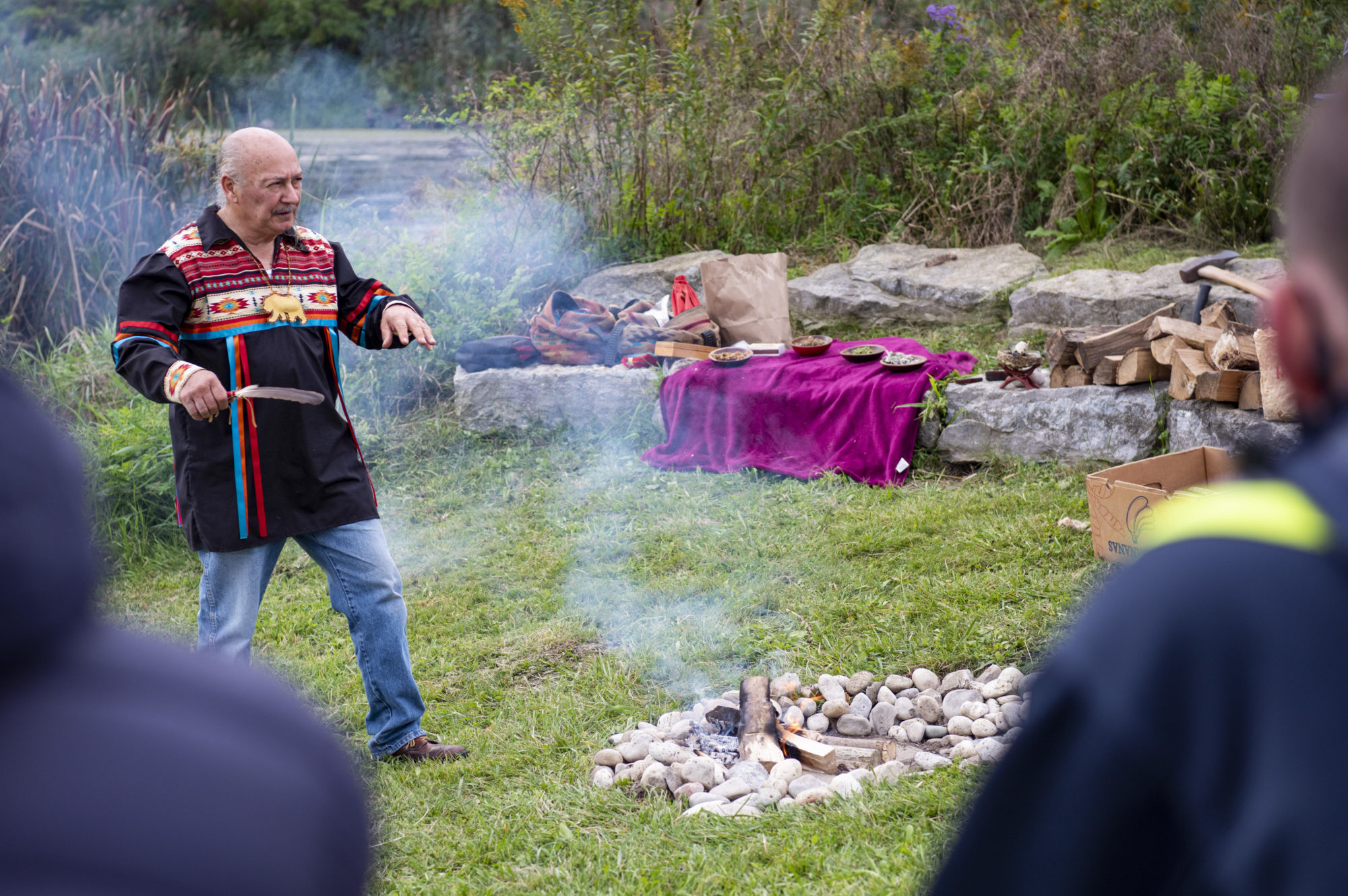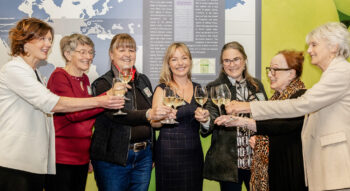It was a day to mourn losses, honour survivors and learn about the truth of residential schools.
On September 30, students, faculty and staff at Niagara College joined residents across Canada in commemorating the inaugural National Day for Truth and Reconciliation.
“Our priority at Niagara College is to commemorate the day in a meaningful way,” said College President Sean Kennedy. “Our goal is to amplify Indigenous voices, and encourage our College community to learn the truth of residential schools, and to engage with truth and reconciliation initiatives at our College and in the community.”
Indigenous Education at NC hosted two events for the College community on the National Day for Truth and Reconciliation – one in-person and one virtual. The day kicked off with a morning Honouring the Children event held in the Indigenous Garden at NC’s Daniel J. Patterson Campus in Niagara-on-the-Lake. The College community was invited to drop in, pay their respects and reflect on the children who were forced from their communities to attend residential schools.
Elder Dave Labbe, who is an alumnus of NC (Electronic Engineering Technology, 1971) lit a fire, offered medicines, and guided the College community through the time of reflection.
“Be the vanguard. The world is watching what Canada does right now,” he said.
A Virtual Circle Discussion: Truth Before Reconciliation event drew participants from the College community via Zoom during the afternoon to listen to stories told from survivors and those impacted by residential schools. Attendees heard from guest speaker Sharon Slippery, who is a third-generation residential school attendee, as well as Elder Gary Parker of the Seneca Nation.
The event focused on the importance of understanding the truth of the profound effects that residential schools had and continue to have on Indigenous communities. It addressed the forced assimilation of Indigenous children, the effects of intergenerational trauma, and it honoured the strength of survivors.
“Niagara College’s September 30 events are intended to be a starting point for an ongoing discussion around Truth and Reconciliation and as initial steps in the important work that our College will be undertaking related to Truth and Reconciliation,” said Rick Anderson, Vice President, Student Success, who became NC’s first Indigenous vice president when he was appointed to the role in January 2021.
Lianne Gagnon, Director of Student Services, which includes Indigenous Education at NC, noted that while this was the first National Day for Truth and Reconciliation at the College, it follows in the footsteps of its annual Orange Shirt Day initiatives. Hosted by Indigenous Education, Orange Shirt Day events have served as a reminder of the devastating history of Indigenous residential schools; their impacts on Indigenous children, families, and communities; and to reinforce that every child matters.
“Now that it is officially known as the National Day of Truth and Reconciliation, we are focusing on the truth first. Before non-Indigenous people can do reconciliation work, it is important to first learn about Indigenous culture and the effects colonization had on them,” said Gagnon.
“We can’t start rectifying the wrongs if we don’t know what they are. We felt that the Virtual Circle would be a valuable way to share information with our staff and students, and to give them a better understanding of why reconciliation is important, while we remember and honour residential school survivors.”
In addition to the events on September 30, some areas of the College also hosted initiatives leading up to the National Day for Truth and Reconciliation. On September 27, NC’s Centre for Academic Excellence hosted a session for faculty and staff members grounded in the book Decolonizing Education: Nourishing the Learning Spirit by Marie Battiste. NC’s schools of Business and Management; Hospitality, Tourism and Sport; and Environment and Horticulture held a virtual session on Sept. 27 to help its faculty and staff learn about the importance of the National Day for Truth and Reconciliation and about how to support Indigenous students.







